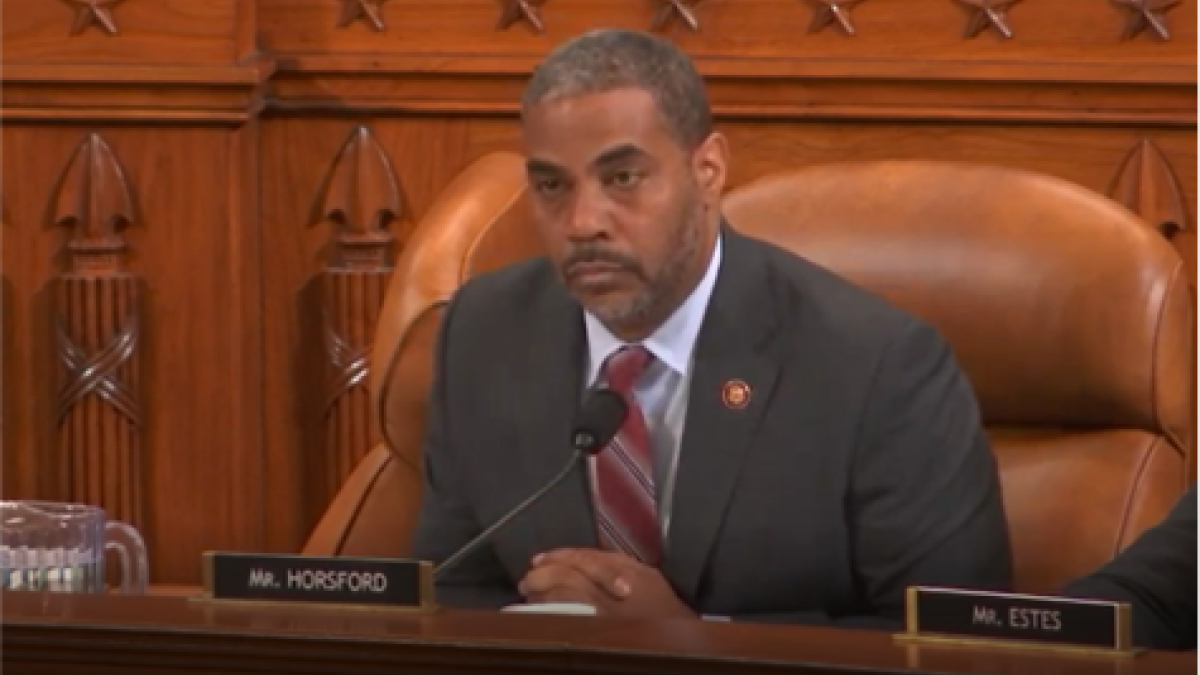Congressman Steven Horsford Grills Secretary Azar Trump Cuts and Soaring Prescription Drug Prices

Washington, D.C. — Today, the House Ways and Means Committee hosted Health and Human Services Secretary Alex Azar to discuss the Trump Administration's proposed budget for the Fiscal Year 2021. Congressman Steven Horsford (NV-04) discussed the negative impact that the Trump budget proposal would have on Nevada's doctor shortage, the Health Profession Opportunity Grant program and the rising cost of prescription drugs.
"The Trump budget proposal cuts the Graduate Medical Education (GME) program by $52 billion over the next 10 years. This does not work for my home state of Nevada. We need more doctors—not cuts to the very program that trains them," Congressman Horsford said in the hearing. "Nevada needs us to strengthen and expand the GME program, NOT make billions of dollars in cuts to it to eliminate the opportunity for new doctors to train and stay in our State. How do you justify this to Nevadans who desperately need to see a doctor but cannot find one?"
There are just over 180 full-time doctors in Southern Nevada per 100,000 residents, compared with 303 per 100,000 on average in the U.S. Today, if Southern Nevada saw no more growth—an unlikely prospect—it would still need at least 2,561 more physicians to bring Nevada to the national average.
The Trump budget also turns its back on the president's promise to lower drug prices, including a target of only $135 billion in savings for prescription drugs—falling much lower than the estimated $500 billion in savings under H.R. 3, which would give Secretary Azar the power to directly negotiate lower drug prices for all Americans.
"You said earlier that President Trump is willing to consider a bill that is brought forward through this process. But then-candidate Trump said he was going to lead on this issue and force drug companies to negotiate. What's changed?" Congressman Horsford asked Secretary Azar. "We need the President's leadership to follow through on a campaign promise that he made to the American people to lower drug costs. I would hope that the administration would follow through on its commitment."
Background:
The Trump budget proposal included a $9.5 billion cut to HHS's discretionary budget for 2021. For mandatory spending, the Trump proposal would cut $1.6 trillion over ten years, including cuts to Medicare, Medicaid, and other necessary health programs. That includes a cut to the Graduate Medical Education program by $52 billion over ten years and the elimination of the Health Profession Opportunity Grant program.
The proposal to slash funding for health care programs comes on the heels of the trillions of dollars of tax cuts congressional Republicans and President Trump gave to big corporations and the wealthiest Americans. These cuts were proposed in the midst of the growing threat of Coronavirus worldwide.
The President's budget proposal would cause some of the most vulnerable in our society to lose access to the Medicaid they rely on for their basic health care needs. Low-income workers, children with disabilities, and seniors who need Medicaid to cover their nursing home care could all feel the effects of these cuts. The budget proposal also cuts $380 billion from hospitals in 10 years, threatening access to care for all Americans, particularly as rural hospitals continue to close in communities across the country.
And, despite claiming he wants bold action to lower drug prices, the President took a much weaker approach on that issue than House Democrats' H.R. 3, which already passed the House. The budget includes a target of $135 billion in savings for prescription drugs, merely a quarter of the nearly $500 billion in savings that H.R. 3 delivers to the American people for lower drug prices and lower premiums.
Watch the full exchange here.
